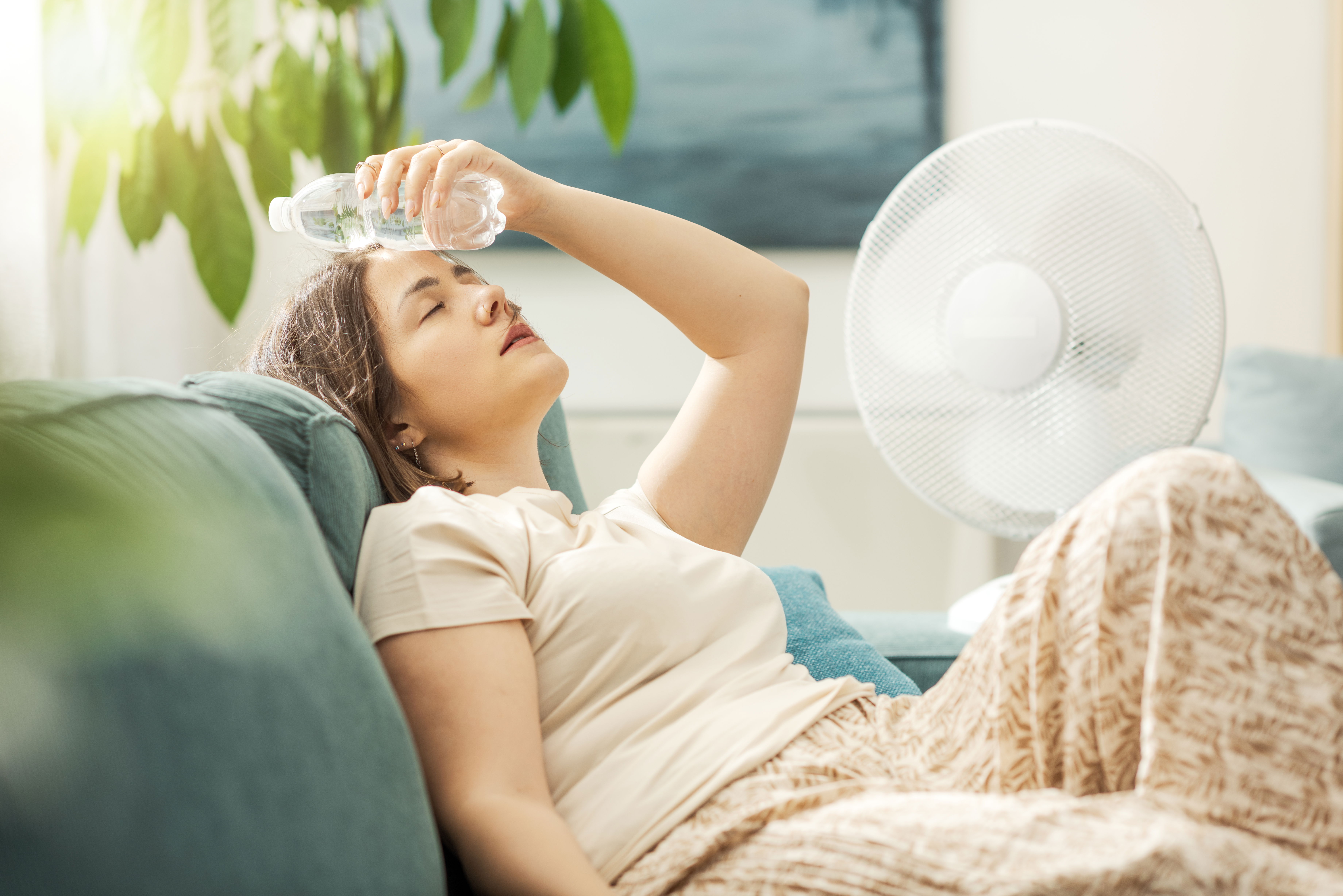Beating the Blaze: How to Protect Your Body and Mind During Scorching Summers
🌞 Introduction: Living Under the Desert Sun
Dubai dazzles with its futuristic skyline, luxury lifestyle, and year-round sunshine. But behind this glamorous image lies one of the toughest challenges for residents and visitors alike — the relentless, blistering heat that defines its long summers. When temperatures climb above 40°C (104°F) daily and the sun feels unforgiving, coping with the heat isn’t just about comfort — it’s about your health and wellbeing. Whether you’re a newcomer adjusting to the climate or a seasoned local looking for new tips, understanding how to protect yourself from heat stroke and mental fatigue is essential.
In this blog, we’ll dive deep into the science of Dubai’s heat, share practical ways to stay safe, and explore how extreme temperatures affect your mental health — plus, how you can build resilience in this demanding environment.
Understanding Dubai’s Scorching Summer Heat
Dubai’s desert climate is known for its scorching hot, dry summers that stretch over nearly half the year, typically from May through September.
During this period, daytime temperatures routinely exceed 40°C (104°F), with some of the hottest days reaching an almost unbearable 50°C (122°F). While the intense heat itself is daunting, the experience is often compounded by high humidity levels, especially near the coastal areas along the Arabian Gulf.
This combination of heat and humidity significantly raises the heat index—a measure of how hot it actually feels to the human body—making outdoor conditions feel even more oppressive and exhausting.
The Risks of Extreme Heat in Dubai
This prolonged exposure to extreme heat isn’t just uncomfortable—it poses serious health risks that residents and visitors must take seriously:
1. Dehydration
In such hot and dry conditions, your body loses water rapidly through sweating, a natural cooling mechanism. However, if you don’t replenish these fluids regularly, dehydration sets in quickly. Even mild dehydration can cause symptoms like headaches, dizziness, dry mouth, and fatigue. If left untreated, it can escalate to severe complications, impairing kidney function and leading to dangerous imbalances in electrolytes.
2. Heat Exhaustion and Heat Stroke
When your body is unable to cool itself effectively, it leads to heat exhaustion—a condition characterized by heavy sweating, weakness, nausea, and fainting. If not addressed promptly, heat exhaustion can progress to heat stroke, a life-threatening emergency where the body’s core temperature rises above 40°C (104°F). Heat stroke can cause damage to vital organs, confusion, loss of consciousness, and even death. This is especially a concern for outdoor workers, athletes, children, the elderly, and those with pre-existing health conditions.
3. Sunburn and Long-term Skin Damage
Dubai’s intense sun exposure means ultraviolet (UV) radiation levels are extremely high. Without adequate protection, prolonged time in the sun can cause painful sunburns, which damage the skin’s outer layers. Beyond immediate pain and redness, repeated UV exposure accelerates skin aging, increases the risk of skin cancers, and damages the eyes. Even cloudy days can have strong UV rays, making consistent sun protection essential.

Heat Stroke: A Silent killer in the Desert
Heat stroke is one of the most serious health threats posed by Dubai’s intense summer heat — yet it often goes unnoticed until it’s too late. Unlike a typical heat-related discomfort, heat stroke is a medical emergency that can cause permanent damage or even be fatal if not treated immediately.
What is Heat Stroke?
Heat stroke occurs when your body’s core temperature rises to dangerous levels — typically above 40°C (104°F) — and the body loses its ability to cool down through sweating. This leads to the failure of the body’s temperature regulation system, causing organs to overheat and malfunction.
Who is Most at Risk?
- Outdoor workers: Construction workers, delivery personnel, and anyone spending long hours outside are especially vulnerable.
- Athletes and fitness enthusiasts: Exercising in extreme heat puts extra strain on the body.
- Children and elderly: These groups have a harder time regulating body temperature.
- People with chronic illnesses or taking certain medications: Some health conditions and medications can impair the body’s heat response.
What to Do If You Suspect Heat Stroke
If you or someone else shows signs of heat stroke:
- Call emergency services immediately.
- Move the person to a cooler place, ideally indoors with air conditioning.
- Remove excess clothing and apply cool water to the skin.
- Use fans or ice packs to help lower body temperature.
- Do not give fluids if the person is unconscious or semi-conscious.
Prompt action can save lives and prevent long-term complications.
Why Is Immediate Treatment Crucial?
Because heat stroke damages the brain and vital organs rapidly, delays in treatment increase the risk of severe complications or death. Cooling the body quickly and seeking emergency medical care are critical to preventing permanent damage.
Tips to Protect Yourself from Heat Stroke in Dubai
1. Hydrate, Hydrate, Hydrate
Water is your best friend in the heat. Carry a water bottle and sip regularly—even if you don’t feel thirsty. Avoid alcohol and caffeinated beverages as they promote dehydration.
2. Dress for the Heat
Choose lightweight, breathable fabrics in light colours to reflect sunlight. A wide-brimmed hat and UV-protection sunglasses shield your face and eyes. Don’t forget a high-SPF sunscreen to protect exposed skin.
3. Plan Your Day Around the Sun
The sun’s rays are strongest between 11 am and 4 pm. Try to stay indoors or in shaded, air-conditioned spaces during these hours. Schedule outdoor activities early in the morning or late in the evening when temperatures are cooler.
4. Use Cooling Tools
Spray bottles with water, portable fans, or cooling towels can provide instant relief. Take breaks often if you must be outside.
5. Know Your Limits
Listen to your body. If you feel dizzy, weak, or nauseous, stop what you’re doing immediately, hydrate, and seek shade.
Mental Health Under the Heat: Why Dubai’s Weather Affects More Than Just Your Body
When people think of the dangers of extreme heat, they usually picture sunburn, dehydration, or heat stroke. But there’s another impact that’s often overlooked — the mental and emotional toll that prolonged exposure to intense heat can have. In cities like Dubai, where summer temperatures remain relentlessly high for months, the weather doesn’t just challenge your physical health — it can also strain your mental well-being.
The Hidden Side of Heat: How Weather Affects the Mind
Studies have shown a strong link between high temperatures and mental stress. Long periods of heat and humidity can cause:
- Irritability and Mood Swings: High heat can make people feel frustrated, restless, and impatient. Small issues might suddenly feel overwhelming.
- Fatigue and Low Motivation: The body works harder in the heat to stay cool, which drains energy. You might find yourself more tired, sluggish, or unmotivated, even with enough rest.
- Difficulty Concentrating: Heat can impair cognitive function, making it harder to focus, solve problems, or think clearly — especially during work or study.
- Increased Anxiety or Depression: People who are already managing anxiety or depression may feel worse during long heatwaves. Disrupted sleep, limited outdoor activities, and isolation can all contribute.
- Sleep Disturbances: Hot nights and fluctuating temperatures can make it hard to fall or stay asleep, which affects mood, memory, and overall mental health.
Why It’s Worse in a City Like Dubai
Dubai’s environment amplifies these effects:
- Urban Heat Island Effect: The concentration of buildings, traffic, and infrastructure traps heat in the city, especially at night, making it harder to cool down.
- Lifestyle Disruption: Outdoor life becomes limited. Beaches, parks, and social events are avoided during peak heat, leading to boredom, isolation, and even a sense of cabin fever.
- Cultural and Work Pressures: Expat professionals and laborers working long hours in hot environments can feel heightened stress and burnout, especially when combined with job demands or homesickness.
Tips to Protect Your Mental Wellbeing During Dubai’s Heat
1. Create a Comfortable Living Environment
Use air conditioning wisely, keep curtains drawn during the day to block sunlight, and consider using fans or cooling devices at night to improve sleep quality.
2. Stay Physically Active — Smartly
Exercise early in the morning or late in the evening when it’s cooler. Home workouts, stretching, or yoga are great indoor alternatives that also help with mental clarity and emotional balance.
3. Practice Daily Mindfulness or Relaxation Techniques
Breathing exercises, meditation, journaling, or simply taking 10–15 minutes to disconnect from screens can help reduce anxiety and centre your thoughts.
4. Stick to a Routine
During long hot months, having a consistent daily routine helps maintain structure and balance, preventing that drifting feeling that heat-related fatigue can bring.
5. Eat and Drink Mindfully
Light, hydrating meals with fruits and vegetables like watermelon, cucumber, and leafy greens can support both your body and brain. Avoid heavy, greasy foods that make you feel lethargic.
6. Socialize (Even if Indoors)
Don’t isolate yourself. Plan indoor coffee meetups, join a local community group, or connect with others online to maintain social bonds, which are crucial for emotional health.
7. Know When to Seek Support
If you’re feeling persistently down, anxious, or emotionally overwhelmed, it’s important to speak to a mental health professional. Many clinics in Dubai offer culturally sensitive counselling services, both online and in person.
🧾 Bonus Tips for Everyday Heat Survival in Dubai
- Carry an umbrella or UV-blocking parasol
- Install car windshield sunshades
- Keep a reusable water bottle with electrolytes
- Download a heat index or UV alert app
Dubai’s scorching summers test the limits of both body and mind, but with the right knowledge and strategies, you can beat the blaze and thrive despite the heat.
Prioritize hydration, sun protection, and rest to shield your physical health from the risks of heat exhaustion and heat stroke. At the same time, nurture your mental wellbeing by managing stress, maintaining a routine, and finding moments of calm amidst the heat.
Remember, surviving Dubai’s heat isn’t just about enduring — it’s about adapting and taking proactive steps to protect yourself. With awareness and care, you can keep cool, stay energized, and enjoy all that this vibrant city has to offer — no matter how high the mercury climbs.
Stay safe, stay strong, and conquer the heat with confidence.
